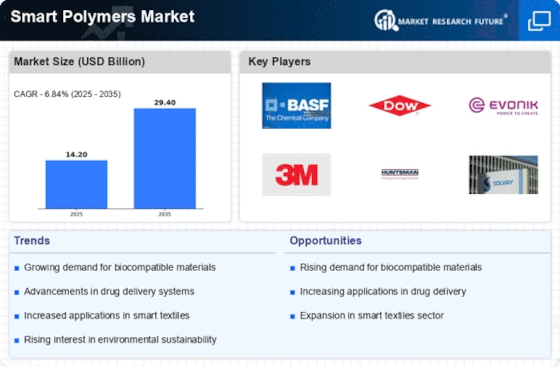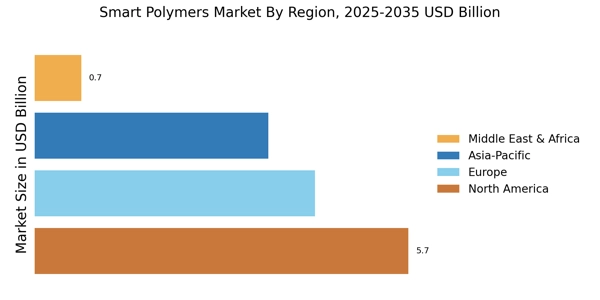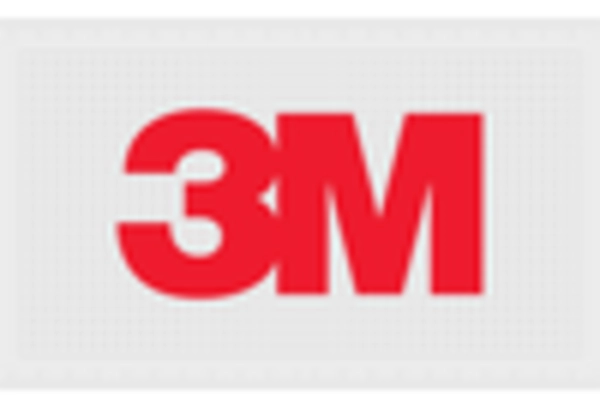Advancements in Material Science
The Smart Polymers Market is significantly influenced by advancements in material science. Innovations in polymer chemistry have led to the development of new smart materials with enhanced properties, such as improved responsiveness and biocompatibility. These advancements are crucial for applications in various sectors, including healthcare, automotive, and electronics. The market for smart materials is anticipated to grow substantially, with estimates suggesting a value of over 20 billion USD by 2027. As industries increasingly adopt these advanced materials, the Smart Polymers Market is likely to benefit from a broader range of applications and increased investment.
Growth in Biomedical Applications
The Smart Polymers Market is witnessing significant growth in biomedical applications, particularly in tissue engineering and regenerative medicine. Smart polymers can mimic the natural environment of cells, promoting tissue regeneration and repair. The market for smart biomaterials is expected to grow at a compound annual growth rate of around 15% over the next few years. This growth is fueled by advancements in material science and an increasing focus on personalized medicine. As healthcare systems evolve, the integration of smart polymers into biomedical applications is likely to enhance treatment efficacy, thereby propelling the Smart Polymers Market.
Increased Focus on Sustainability
The Smart Polymers Market is also being driven by an increased focus on sustainability and eco-friendly materials. As environmental concerns rise, industries are seeking alternatives to traditional polymers that are often non-biodegradable. Smart polymers, particularly those derived from renewable resources, offer a promising solution. The market for biodegradable smart polymers is expected to grow significantly, with projections indicating a potential market size of 5 billion USD by 2028. This shift towards sustainable practices is likely to enhance the appeal of smart polymers, thereby fostering growth within the Smart Polymers Market.
Emerging Applications in Electronics
The Smart Polymers Market is expanding into the electronics sector, where these materials are utilized in various applications, including sensors and actuators. Smart polymers can change their properties in response to external stimuli, making them ideal for use in flexible electronics and wearable devices. The market for smart electronic materials is projected to grow at a compound annual growth rate of approximately 12% over the next five years. As consumer demand for innovative electronic products increases, the integration of smart polymers into this sector is likely to drive further growth in the Smart Polymers Market.
Rising Demand in Drug Delivery Systems
The Smart Polymers Market is experiencing a notable surge in demand for drug delivery systems. These polymers are engineered to respond to specific stimuli, such as pH or temperature, allowing for controlled release of therapeutic agents. This capability is particularly advantageous in treating chronic diseases, where precise dosage is crucial. The market for smart drug delivery systems is projected to reach approximately 10 billion USD by 2026, indicating a robust growth trajectory. As healthcare providers increasingly seek innovative solutions to enhance patient outcomes, the adoption of smart polymers in pharmaceuticals is likely to expand, thereby driving the Smart Polymers Market forward.

















